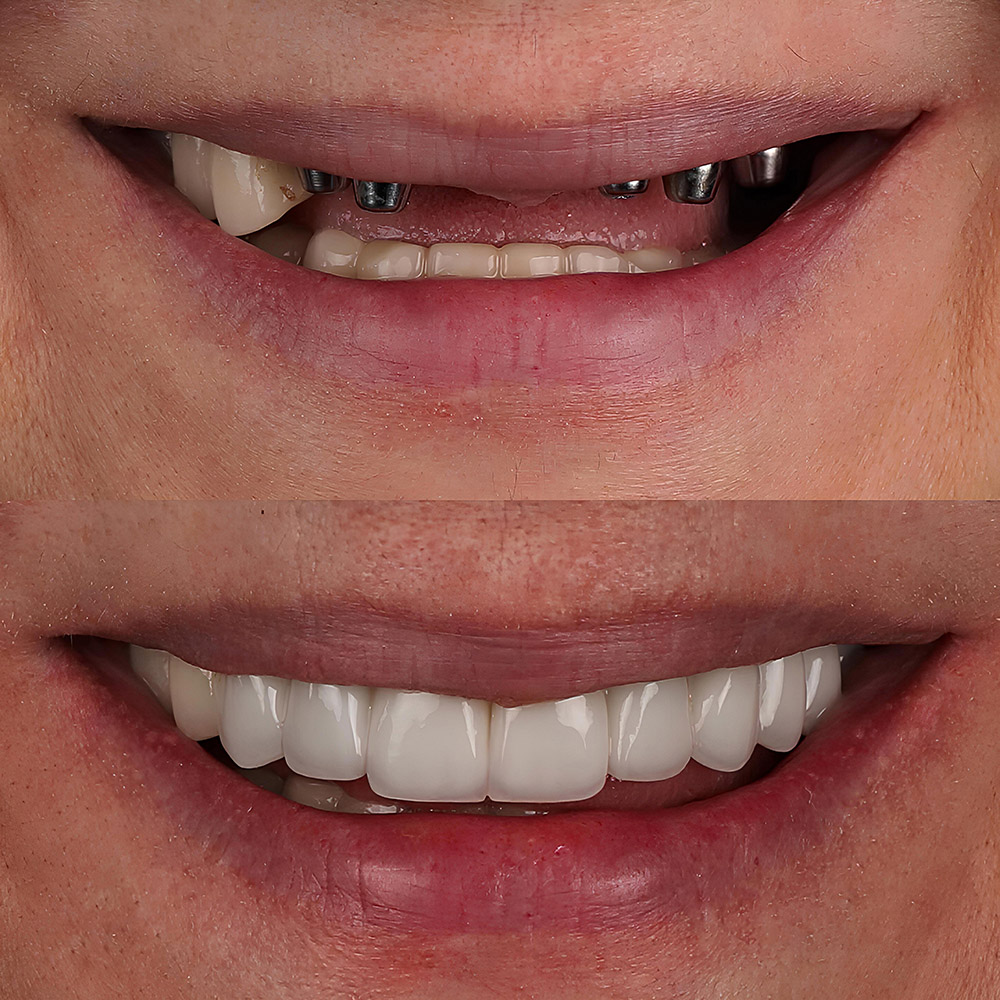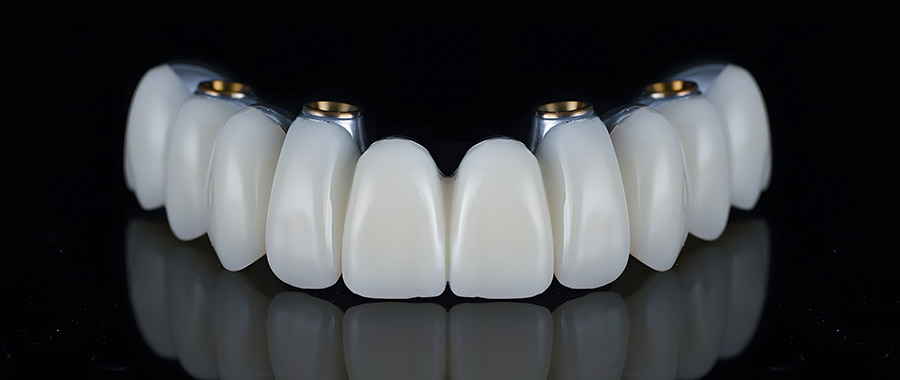Why should we have dental implants when teeth are missing?
The integrity of the body is extremely important. When even one of our organs does not work, we experience problems. Problems in the teeth also affect the internal organs. It can cause many diseases such as being overweight.
People with missing teeth age early:
Tooth loss, which is often ignored, causes great trouble for people over time. Tooth loss reduces bone density and causes a change in bone size of up to 25 percent in a year.
This causes melting of the jawbone over time, and the natural changes in the facial area due to aging begin to appear at an early stage. Missing teeth also invite many diseases from reflux to diabetes. We know that missing teeth “lead to early aging” in terms of facial aesthetics. Long-term tooth loss causes melting in the jawbone, causing deepening of the lines on the lips and face, especially around the mouth, causing the corners of the lips to droop, and creating a tired and aged facial appearance in the patient. Since the cheeks are sunken and the lips take on a thinner appearance, the person looks 5-10 years older. In order for the jawbone to be protected, chewing forces must be transmitted to the entire bone, and it is emphasized that this can only be achieved with dental implants that act as natural teeth or tooth roots.
“Every adult should have 28 teeth in their mouth, whether they are natural teeth or dental implants.”
Chewing quality affects all internal organs
 For a healthy digestive system that works well, pay attention to the importance of oral and dental health. While the reason for not being able to lose weight or get rid of reflux despite treatment may be missing teeth, problems that start in the mouth due to missing teeth can also cause stomach and digestive system diseases. The quality of chewing affects all internal organs, especially the stomach and pancreas, and when food is not chewed and ground as much as necessary, it goes to the stomach without being broken down enough, so in this case, the stomach has to take on the entire burden of digestion. This leads to excessive secretion of stomach acids and excessive work of the pancreas and gallbladder. Overwork of the pancreas invites diabetes.
For a healthy digestive system that works well, pay attention to the importance of oral and dental health. While the reason for not being able to lose weight or get rid of reflux despite treatment may be missing teeth, problems that start in the mouth due to missing teeth can also cause stomach and digestive system diseases. The quality of chewing affects all internal organs, especially the stomach and pancreas, and when food is not chewed and ground as much as necessary, it goes to the stomach without being broken down enough, so in this case, the stomach has to take on the entire burden of digestion. This leads to excessive secretion of stomach acids and excessive work of the pancreas and gallbladder. Overwork of the pancreas invites diabetes.
Decrease in Oral Functions
Teeth play an important role in performing basic functions in the mouth such as chewing, speaking and swallowing. Tooth loss can seriously affect chewing ability in particular. Missing teeth cause food to not break down properly during chewing. This makes it difficult for the digestive system to function and can cause stomach problems and digestive disorders.
Additionally, missing teeth can make it difficult to speak properly in the mouth. In order for the sound to come out correctly during speech, the teeth and lips must work in harmony. Loss of teeth can lead to distortion of the voice, which can negatively affect a person’s self-confidence.
Shifting Teeth and Other Dental Problems
A missing tooth can cause the surrounding healthy teeth to move. Teeth are naturally fixed and balanced in place. However, when a tooth is lost, adjacent teeth try to fill the gap. This can cause the teeth to sit in the wrong position and cause crooked teeth. The shifting of teeth can lead to an improper bite (occlusion), which can lead to pain while chewing and joint problems.
Jawbone Loss
Teeth stimulate the jawbone to keep it healthy. In the event of tooth loss, the jawbone does not receive sufficient stimulation and begins to melt over time. Melting of the jawbone can lead to major problems both aesthetically and functionally. Melted jawbone can cause further tooth loss, deterioration of the jaw structure, and even changes in the shape of the face.
Aesthetic Concerns
Missing teeth can directly affect people’s aesthetic appearance. Especially the loss of front teeth spoils people’s smile and speech style. People can be embarrassed and lose self-confidence due to missing teeth. Aesthetic concerns can also have negative effects on social relationships. Due to tooth loss, people may tend to smile less, talk less and withdraw from social life.
Psychological Effects
Another important effect of tooth loss is its psychological consequences. Tooth loss can reduce a person’s self-confidence and lead to mental disorders such as depression. Avoiding smiling, aesthetic concerns and social isolation can negatively affect the individual’s psychological health. In addition, in individuals who care about their jaw and teeth health, general health concerns may increase in the event of tooth loss.
Effects on General Health
Tooth loss is not limited to oral health but can also have negative effects on overall health. Missing teeth can be a sign of certain health problems. Some diseases associated with tooth loss are heart disease, diabetes, respiratory diseases and digestive problems. Bacteria that may form in the mouth can spread throughout the body through blood and cause serious health problems.
Missing Teeth and Nutrition
Missing teeth can cause people to change their eating habits, especially because it affects chewing function. Hard foods and foods that are difficult to chew may be less preferred. As a result, adequate nutrients may not be taken, and vitamin and mineral deficiencies may occur. This can weaken the immune system and lead to more serious health problems.
Result
Missing teeth is more than just an aesthetic problem. Oral health can have far-reaching effects on overall health and psychological well-being. Regular dental visits, good oral hygiene and a healthy lifestyle are important to prevent tooth loss. If tooth loss has occurred, replacing these deficiencies with implants or other dental treatment methods can improve both functional and psychological health.
If you would like to get information about treatment options for your missing teeth, you can call us or reach us directly via our WhatsApp line.

